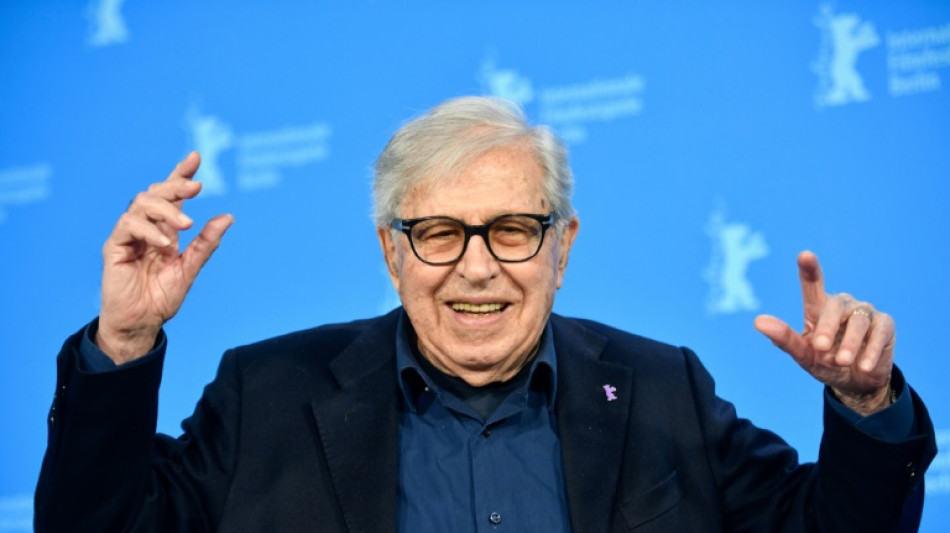

Italian director Taviani flies solo after brother's death
After more than half a century making acclaimed films with his brother Vittorio, Italian director Paolo Taviani premiered a movie on his own in Berlin on Tuesday at the age of 90.
But despite Vittorio's death in 2018, "he is still with me", Taviani told AFP ahead of the first screening of "Leonora Addio" at the 72nd Berlinale film festival.
The two brothers initially came up with the idea for the film, which explores death and the legacy of creative endeavours, long before Vittorio's death, Taviani said.
The inspiration came from a short story called "The Nail" written by Italian author Luigi Pirandello just 20 days before his death.
The first part of the film tells the somewhat absurd story of Pirandello's ashes as they are transported from their initial burial site in fascist Rome to a permanent resting place in Sicily.
Then, in a second section, the film goes on to render the story of "The Nail" itself, about a Sicilian boy who kills a young girl in New York.
According to Taviani, the result is "a complex film which is sad but also not sad. I did all I could to show you sad situations but also grotesque situations and also love stories," he said.
Taviani and his brother were fascinated by the journey of the ashes because it held "so much narrative richness", he said.
- 'Powerful roots' -
"Some of it is true, some of it is invented, it's a bit of a mixture, and it is also a big confusion, a bit like the confusion in our lives and around us in this pandemic time," he said.
"When we decided to do cinema, Vittorio was 18 and I was 16. And it was because we saw 'Paisan' by (Roberto) Rossellini," Taviani told AFP.
"We realised that if films can change lives and can reveal us, our truth, then we wanted to make movies in our lives.
"This is what we did and many years after we won the Palme d'Or for 'Padre Padrone', it was given to us by Rossellini. And it was like a circle closing, the completion of a circle," he said.
"Padre Padrone", set in Sardinia, won the top Palme d'Or prize at the Cannes film festival in 1977.
Another of the brothers' critically acclaimed films is 2012's "Caesar Must Die", for which they won the Golden Bear prize at the Berlinale.
"Leonora Addio", a contender for the Golden Bear at this year's festival, contains several references to films from the golden age of neorealism in Italian cinema.
"It was like the Renaissance when there were lots of extraordinary artists, with directors like (Luchino) Visconti and (Federico) Fellini," Taviani said.
Is this golden age over? "I think it was like a tree. That tree grew roots in the ground... The roots are still there and they are very powerful and very strong.
"If young people find money to do good films, then this tree will start growing again."
Y.Simon--JdB



